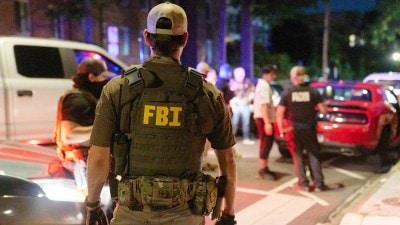Delhi still far away from power seat
The Union Government has announced that it proposes to bring in legislation for conferring statehood on Delhi with the provision that law an...

The Union Government has announced that it proposes to bring in legislation for conferring statehood on Delhi with the provision that law and order and the Delhi Police administration would be directly under the Central Government. Additionally, the New Delhi Municipal Committee and the region administered by it would also be directly under the Centre.
The proposal appears to be a flagrant violation of the Constitution. The Seventh Schedule lays down the subjects dealt with by the Union and the States. Under the State List the very first subject relates to public order and police. Maintenance of law and order is the basic and primary responsibility for any state government and almost every chief minister is directly in charge of law and order and the police. Conferring the so-called statehood on Delhi without entrusting the state administration with the police and responsibility for law and order would be improper and unjustified. Even in the former union territory of Arunachal Pradesh, of which I was Lt. Governor in 1980-83, the Chief Minister had the control of the police department and except for policy matters, for which the approval of the Lt. Governor was sought, the CM had the full authority over maintenance of law and order.
The basic requirement of the people is maintenance of public order and everything else comes thereafter. If there are communal disturbances or serious riots over some issue or other, the dissatisfaction of the people would visit the Delhi administration and not the Centre. In fact, the common people do not know that in the Union Territory of Delhi it is the Central Government which administers law and order and control over the police and that the Delhi administration has no decisive say in the matter. When the Delhi state, along with the four other states, is facing assembly polls in November, the proposed statehood Bill seems to be a political ploy than anything else.
The Fazl Ali Commission on the states reorganisation, appointed by Prime Minister Jawaharlal Nehru, submitted its report in 1955. One of the important recommendations of the Fazl Ali Commission was that the north eastern border region should remain under the direct administration of the Centre in view of the security implications. While the new states come into being in November 1956, consequent to the recommendations of the Commission, the north eastern region remained part of Assam, excluding the princely States of Manipur and Tripura. However, following the Nagaland militancy which resulted in extensive disruption of public order in that region, Prime Minister Nehru announced statehood for Nagaland with all the trappings of a State in 1963.
When the Union Territories of Arunachal Pradesh and Mizoram were conferred with statehood in 1987, all the items mentioned in the State list accrued to them. The Governors of these border states were conferred with certain supervisory provisions for maintenance of law and order, especially in the border areas, as in the case of Arunachal Pradesh, and in a general sense elsewhere. In practice, however, the Governors of these border states cannot interfere with the administration of the States.
In Nagaland, the Governors see how blatantly the Naga militants are undermining the administration. It is common knowledge that the Naga militants collect 10 per cent of the salary of the government servants at the source, which means that they visit the salary disbursing officers and collect the money instead of taking the trouble of collecting the same individually. This collection, however, is only a pittance as the main collection of the Naga underground comes from the developmental funds collected from the contractors. This is happening not only in Nagaland, but also in Manipur. The Centre is fully aware of these happenings. At least three chief ministers of the border states are facing corruption charges which have already been enquired into by the CBI and nobody knows what is happening in those cases. Yet the Centre did not consider that law and order and the police should be directly under the Centre in these afflicted states.
If the border states of Arunachal, Nagaland, Manipur and Tripura, who are all having serious problems of insurgency and law and order are all enjoying the powers conferred in the State list provided for by the Constitution, including the control over the police and maintenance of law and order, why should Delhi state be singled out for denial of control over law and order and the police administration?
It is perfectly understandable that the region where the Central Government offices are located and the residential areas of the Lutyen’s Delhi, where the PM and all the ministers and senior officers reside, should be brought directly under the control of the Centre, as in the case of Washington, District Columbia, in the United States. District Columbia has been declared a federal district, directly under the administration of the federal government. That would be a proper arrangement in respect of Delhi and New Delhi. The Union government should therefore review the matter and do what is expected of it under the Constitution.
(The author is former Director, Intelligence Bureau , Lt Governor of Arunachal Pradesh, and Governor of Sikkim and West Bengal)
Photos


- 01
- 02
- 03
- 04
- 05




























